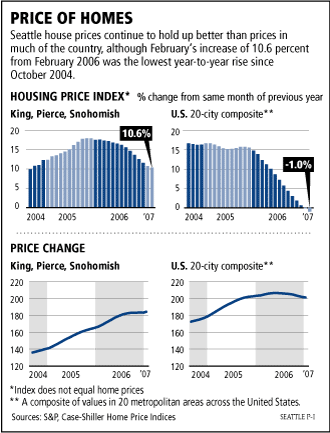 Last night I watched an investigative report on the local evening news about a loan originator who put the hard sell on two brothers to purchase 3 investment homes and now the brothers are having to sell their primary residence in order to try to make ends meet. There was so much wrong to this story that it made my gut turn.
Last night I watched an investigative report on the local evening news about a loan originator who put the hard sell on two brothers to purchase 3 investment homes and now the brothers are having to sell their primary residence in order to try to make ends meet. There was so much wrong to this story that it made my gut turn.
I’m glad that predatory loan originators are being exposed. It’s truly unfortunate that for every one of these LOs, there’s an anxious, gullible borrower on the other end. Here are just a few of the highlights from last nights story :
The LO grossly overstated the buyers income. And according to the buyers, the signature on the loan application was not theirs. Absolute fraud.
- The LO was the selling agent, loan originator and the seller (he transferred the property to a family member)…I’m assuming he was the listing agent, too?
- The properties were horrible overpriced. According to the report, the brothers bought a property for $605,000 and it’s only worth $400,000.
The brothers state they were shocked at their new mortgage payments when they arrived. Since the loan applications were forged, I’m assuming they had no idea what their payments would be.
Simply googling the loan originators name shows that he has been banned recently from his former career as a stockbroker for "defrauding customers" and trying to "harass and intimidate" a securities investigator.
"He’s a great salesman, I’ll tell you that…and stupid me, and stupid us…for trusting someone with a silver tongue."
It is so important to carefully select the Mortgage Professional you will be working with. This may not be an easy task, you’ll need to do some research. The brothers in this story say that this loan originator is one of their friends!
-
Google the Loan Originators name. What pops up from the search?
-
Read the LOs blog. You’d be surprised how you can get a "read" on a LO’s personality and lending style.
-
Get referrals from your other people you respect.
-
Get second opinions from other lenders or professionals (such as your CPA, CFP, etc.)
I also have an issue when selling agents are also the loan originator. In my opinion, it’s too self serving and a green light for abuse. The loan originator/real estate agent should only wear one hat during a transaction…not two. This subject deserves a post on it’s own. I wonder if this LO disclosed on the purchase and sale agreement the relationship to the seller?
If it seems too good to be true, it probably is. Owning investment properties can be great. I recommend dipping your toe into that pool slowly. Jumping in with 3 homes (the brothers bought 2 condos and a house for investment) is a certain recipe for disaster when you do not have experience as a landlord. Even if the LO was a decent lender, these were highly risky purchases.
It will be interesting to see how this story unfolds. My first post was about a local mortgage fraud case as well and I’m still waiting to see if this predatory loan originator was able to slither away.
DFI currently shows this LOs license as pending…which probably doesn’t indicate anything at this time since Loan Originators will not be able to take the test until June 1, 2007. DFI is, however, in the process of background checks…so it will be interesting to follow this LOs career and to see if he will be able to continue working as Mortgage Broker or if he can find employment elsewhere in the lending industry that is not licensed by the State of Washington.















Recent Comments